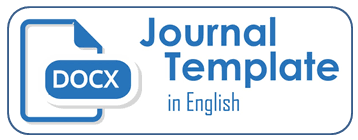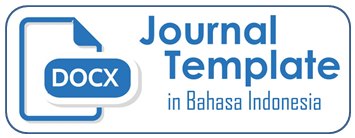URGENSI PEMERIKSAAN AUDIT DALAM MENGUNGKAP PRAKTIK FRAUD PADA LAPORAN KEUANGAN PERUSAHAAN
DOI:
https://doi.org/10.26486/jramb.v10i2.4577Abstract
Laporan keuangan yang andal merupakan fondasi utama bagi pengambilan keputusan ekonomi. Namun, praktik fraud yang dilakukan oleh pihak internal perusahaan kerap mengaburkan transparansi informasi keuangan. Audit dipandang sebagai instrumen penting dalam mendeteksi dan mencegah kecurangan tersebut. Penelitian ini bertujuan untuk mengkaji secara sistematis peran audit dalam mengungkap praktik fraud melalui pendekatan Systematic Literature Review (SLR). Data dikumpulkan dari 20 artikel ilmiah terbitan 2021–2025 yang diperoleh dari database seperti Scopus, DOAJ, dan Google Scholar, dengan proses seleksi mengikuti alur PRISMA. Hasil penelitian menunjukkan bahwa efektivitas audit dalam mendeteksi fraud dipengaruhi oleh beberapa faktor utama, yaitu kompetensi auditor, tingkat independensi, pemanfaatan teknologi audit, kualitas sistem pengendalian internal perusahaan, serta kolaborasi antara auditor internal dan eksternal. Pembahasan mengungkap bahwa meskipun auditor memiliki peran strategis, mereka juga dihadapkan pada berbagai keterbatasan seperti tekanan manajemen, keterbatasan sumber daya, dan kompleksitas skema fraud modern. Penelitian ini menyimpulkan bahwa perbaikan sistem audit secara menyeluruh, peningkatan kapasitas auditor, serta dukungan kelembagaan dan teknologi menjadi syarat penting dalam memperkuat peran audit sebagai garda terdepan dalam pencegahan fraud. Studi ini menegaskan perlunya reformasi kurikulum pendidikan auditor, penguatan regulasi independensi audit oleh otoritas, serta distribusi akses teknologi audit yang lebih merata, khususnya bagi KAP skala menengah di Indonesia
References
Achmad, T., Ghozali, I., & Pamungkas, I. D. (2022). Hexagon fraud: Detection of fraudulent financial reporting in state-owned enterprises Indonesia. Economies, 10(1), 13. https://doi.org/10.3390/economies10010013
Al Natour, A. R., Al-Mawali, H., Zaidan, H., & Said, Y. H. Z. (2025). The role of forensic accounting skills in fraud detection and the moderating effect of CAATTs application: Evidence from Egypt. Journal of Financial Reporting and Accounting, 23(1), 30–55.
Amyar, F., Rahma, A., Azis, N., & Suwarno, S. (2023). The effect of auditor’s professional skepticism and whistleblowing system on fraud detection: Evidence from Indonesian public sector audit. Research Horizon, 3(4), 477–486.
Arum, E. D. P., & Wahyudi, I. (2021, June). Audit quality and fraud detection: Evidence of the internal auditor of Jambi province. In Sixth Padang International Conference on Economics Education, Economics, Business and Management, Accounting and Entrepreneurship (PICEEBA 2020) (pp. 8–14). Atlantis Press.
Baghdasaryan, V., Davtyan, H., Sarikyan, A., & Navasardyan, Z. (2022). Improving tax audit efficiency using machine learning: The role of taxpayer’s network data in fraud detection. Applied Artificial Intelligence, 36(1), 2012002. https://doi.org/10.1080/08839514.2022.2012002
Demirović, L., Isaković-Kaplan, Š., & Proho, M. (2021). Internal audit risk assessment in the function of fraud detection. Journal of Forensic Accounting Profession, 1(1), 35–49.
Du, X. (2025). Audit fraud detection via EfficiencyNet with separable convolution and self-attention. Transactions on Computational and Scientific Methods, 5(2).
Elumilade, O. O., Ogundeji, I. A., Achumie, G. O., Omokhoa, H. E., & Omowole, B. M. (2021). Enhancing fraud detection and forensic auditing through data-driven techniques for financial integrity and security. Journal of Advanced Education and Sciences, 1(2), 55–63.
Handoko, B. L., & Liusman, S. (2021, July). Analysis of external auditor intentions in adopting artificial intelligence as fraud detection with the unified theory of acceptance and use of technology (UTAUT) approach. In Proceedings of the 2021 12th International Conference on E-business, Management and Economics (pp. 96–103).
Ilori, O., Nwosu, N. T., & Naiho, H. N. N. (2024). Advanced data analytics in internal audits: A conceptual framework for comprehensive risk assessment and fraud detection. Finance & Accounting Research Journal, 6(6), 931–952.
Kamdjoug, J. R. K., Sando, H. D., Kala, J. R., Teutio, A. O. N., Tiwari, S., & Wamba, S. F. (2024). Data analytics-based auditing: A case study of fraud detection in the banking context. Annals of Operations Research, 340(2), 1161–1188.
Kassem, R., & Turksen, U. (2021). Role of public auditors in fraud detection: A critical review. Contemporary Issues in Public Sector Accounting and Auditing, 105, 33–56.
Lannai, D., Muslim, M., & Aviyah, N. (2021). Causality of fraud detection. Jurnal Akuntansi, 25(1), 19–33.
Nguyen, T. Q., Truong, T. H., Tran, M. D., Phung, V. H., Nguyen, T. L., & Tran, B. M. (2024). Determinants influencing the effectiveness of internal auditing and the responsibility of auditors in fraud detection in an emerging country. Journal of Governance and Regulation, 13(1).
Nisak, I. A., & Rochayatun, S. (2023). The role of internal audit, fraud detection, and prevention in universities: A literature review. Dialektika: Jurnal Ekonomi dan Ilmu Sosial, 8(1), 63–71.
Noch, M. Y., Ibrahim, M. B. H., Akbar, M. A., Kartim, K., & Sutisman, E. (2022). Independence and competence on audit fraud detection: Role of professional skepticism as moderating. Jurnal Akuntansi, 26(1), 161–175.
Owolabi, S. A., & Ogunsola, O. A. (2021). Forensic auditing and fraud detection in the Nigerian deposit money banks. American Journal of Humanities and Social Sciences, 5(2), 347–355.
Oyerogba, E. O. (2021). Forensic auditing mechanism and fraud detection: The case of Nigerian public sector. Journal of Accounting in Emerging Economies, 11(5), 752–775.
Priyadi, A., Hanifah, I. A., & Muchlish, M. (2022). The effect of whistleblowing system toward fraud detection with forensic audit and investigative audit as mediating variable. Devotion: Journal of Research and Community Service, 3(4), 336–346.
Qatawneh, A. M. (2024). The role of artificial intelligence in auditing and fraud detection in accounting information systems: Moderating role of natural language processing. International Journal of Organizational Analysis. https://doi.org/10.1108/IJOA-09-2023-3904
Sánchez-Aguayo, M., Urquiza-Aguiar, L., & Estrada-Jiménez, J. (2021). Fraud detection using the fraud triangle theory and data mining techniques: A literature review. Computers, 10(10), 121. https://doi.org/10.3390/computers10100121
Sembiring, F. N. B. R., & Widuri, R. I. N. D. A. N. G. (2023). The effect of auditor experience, big data and forensic audit as mediating variables on fraud detection. Journal of Theoretical and Applied Information Technology, 101(6), 2324–2337.
Soltani, M., Kythreotis, A., & Roshanpoor, A. (2023). Two decades of financial statement fraud detection literature review; Combination of bibliometric analysis and topic modeling approach. Journal of Financial Crime, 30(5), 1367–1388.
Wahidahwati, W., & Asyik, N. F. (2022). Determinants of auditors ability in fraud detection. Cogent Business & Management, 9(1), 2130165. https://doi.org/10.1080/23311975.2022.2130165
Downloads
Published
Issue
Section
License
Copyright (c) 2025 hariyani hariyani, Restu Afriansyah, Dr.Agustina Mappadang

This work is licensed under a Creative Commons Attribution-NonCommercial-ShareAlike 4.0 International License.
Authors who publish with (JRAMB) Jurnal Riset Akuntansi Mercu Buana agree to the following terms:
Authors retain copyright and grant the JRAMB right of first publication with the work simultaneously licensed under a Creative Commons Attribution License (CC BY-SA 4.0) that allows others to share (copy and redistribute the material in any medium or format) and adapt (remix, transform, and build upon the material) the work for any purpose, even commercially with an acknowledgement of the work's authorship and initial publication in JRAMB. Authors are able to enter into separate, additional contractual arrangements for the non-exclusive distribution of the journal's published version of the work (e.g., post it to an institutional repository or publish it in a book), with an acknowledgement of its initial publication in JRAMB.
Authors are permitted and encouraged to post their work online (e.g., in institutional repositories or on their website) prior to and during the submission process, as it can lead to productive exchanges, as well as earlier and greater citation of published work (See The Effect of Open Access).












